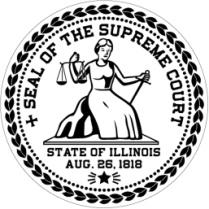Quick Take on Illinois Supreme Court Opinion Issued Thursday, November 1

The Illinois Supreme Court handed down one opinion on Thursday, Nov. 1. The supreme court upheld the dismissal of a man’s post-conviction petition in an armed robbery case.
By Kerry J. Bryson, Office of the State Appellate Defender
Torrence DuPree was charged with, and convicted of, two counts of armed robbery for an incident in 2010. Evidence at trial was that two men drove to an apartment complex to sell marijuana to a third. During the transaction, a hooded man approached the seller’s vehicle, displayed a weapon, and took money and a backpack. No physical evidence linked DuPree to the offense, but the prosepective marijuana purchaser identified him as the offender. Also, one of the vehicle’s occupants identified DuPree in a photo array, stating that he was 70 percent certain of the identification. That witness also described the offender as being at least 6 feet tall, but DuPree was only 5 feet, 8 inches tall. The vehicle’s driver did not testify at trial.
In a post-conviction petition, DuPree alleged that his trial counsel had provided ineffective assistance of counsel for not calling the driver as a witness because the driver had provided three statements to the police, each describing the incident somewhat differently. The driver’s statements also described the offender as being 6 feet tall, or taller, and the driver identified another person from a photo array and said he was “sure” of that identification. The trial court dismissed the petition at the second stage, finding that DuPree had not made a substantial showing of ineffective assistance of counsel.
The appellate court reviewed the dismissal, but did not reach the merits. Instead, the court affirmed the dismissal because DuPree had not attached an affidavit from the driver to support his claim that counsel was ineffective for not calling the driver as a witness.
The Illinois Supreme Court disagreed with the appellate court’s reasoning. The supreme court held that the Post-Conviction Hearing Act does not require a witness affidavit, but rather specifically allows other types of supporting evidence. Likewise, the court held that its own caselaw did not create a bright-line rule requiring an affidavit to support a claim of ineffective assistance for failure to call a witness, but also acknowledged that in most cases an affidavit may be necessary. Here, however, because there were three signed, handwritten statements from the witness, a separate affidavit was not needed to assess the claim.
The court upheld the dismissal, however, concluding that DuPree had not made a substantial showing of ineffective assistance. Whether to call a witness is typically a matter of trial strategy. Here, the court concluded that the identification evidence as a whole was not weak, and the uncalled witness’ statements were not especially helpful to DuPree. Thus, DuPree could not overcome the presumption that counsel’s decision not to call the witness was strategic, and thus DuPree did not make a substantial showing of ineffective assistance of counsel.
Justice Thomas concurred, explaining that he agreed with the appellate court’s reasoning that dismissal was proper for failure to attach an affidavit from the witness. Justice Thomas discussed several prior supreme court opinions, and concluded that the court had consistently required such an affidavit, stating, “this court has interpreted the statute [section 122-2] as meaning that, when the claim raised in a post-conviction petition is ineffective assistance of counsel based on the failure to call a particular witness, the supporting document must be an affidavit.”

